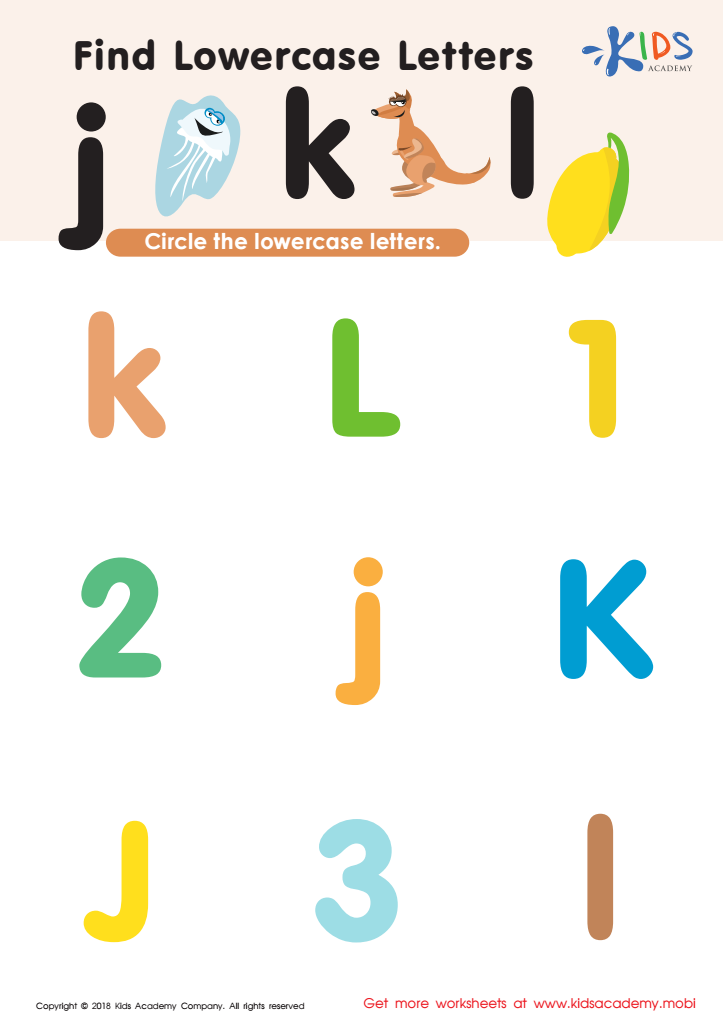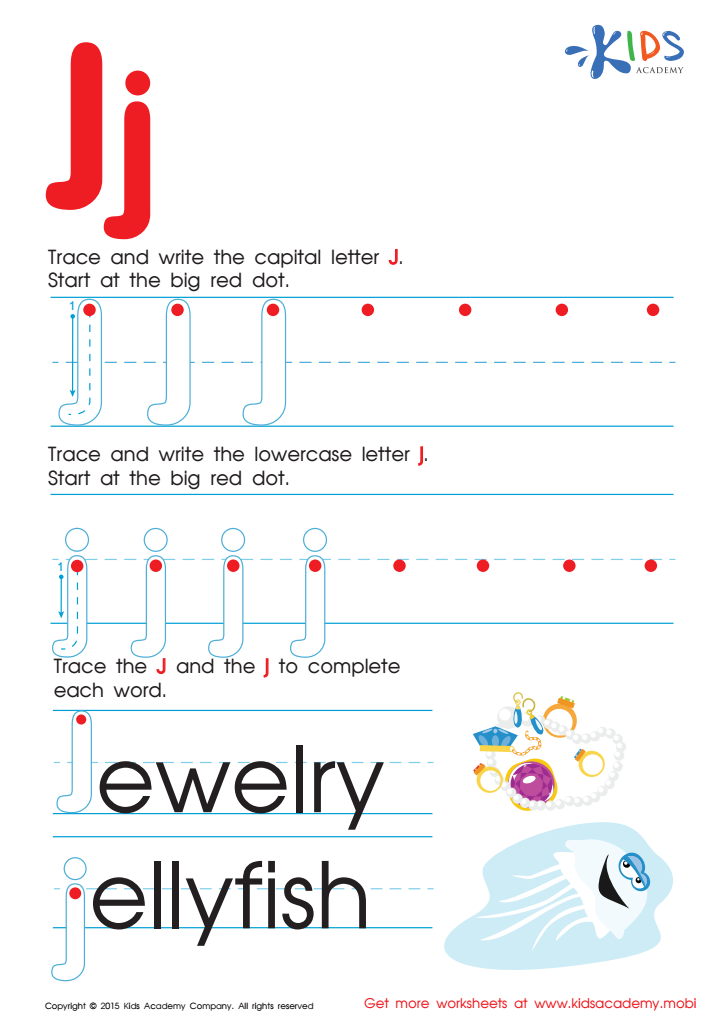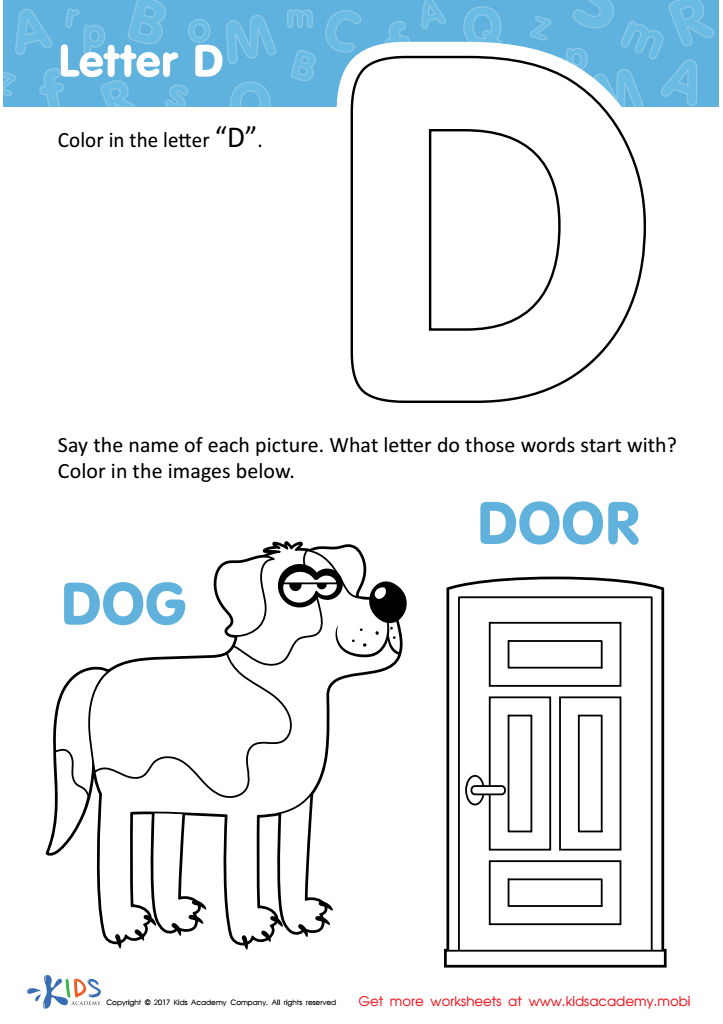Fine motor skills development Normal Letter Recognition Worksheets
3 filtered results
-
From - To
Boost your child's fine motor skills and letter recognition with our engaging worksheets! Specifically designed for young learners, these PDFs help kids practice proper pencil grip and hand-eye coordination while familiarizing themselves with the alphabet. Each sheet features a variety of activities such as tracing, matching, and writing letters, making learning fun and effective. Our expertly crafted worksheets support cognitive development and prepare children for more advanced writing tasks. Ideal for both classroom and at-home use, they serve as an excellent resource for developing essential early literacy skills. Cultivate your child's growth with our proven, educational approach!


Find Lowercase Letters j k l Worksheet


Letter J Tracing Page


Letter D Coloring Sheet
Fine motor skills development is essential for young children because it underlies their ability to perform tasks that involve small muscle movements, particularly those in the hands and fingers. When parents and teachers focus on enhancing these skills, they set a foundation for children to manage everyday activities such as buttoning clothes, tying shoelaces, and feeding themselves. Beyond these practical skills, fine motor skills are crucial for academic success.
For instance, solid fine motor abilities enable children to hold pencils correctly, write legibly, cut with scissors, and manipulate small objects—vital activities in a classroom setting. Proper letter formation depends on manual dexterity, control, and muscle strength, and it makes letter recognition smoother and quicker. Without robust fine motor skills, children might struggle with handwriting, leading to academic frustration, reduced confidence, and avoidance of written tasks.
Moreover, as children develop these foundational skills, they enhance their hand-eye coordination and spatial awareness, contributing to overall cognitive development. Activities like drawing, painting, puzzles, and building blocks play a pivotal role. Therefore, caregivers and educators who prioritize fine motor skill development ensure children can engage effectively with their learning environment, boosting their chances for success and laying a critical groundwork for future learning and development.
 Assign to My Students
Assign to My Students
















